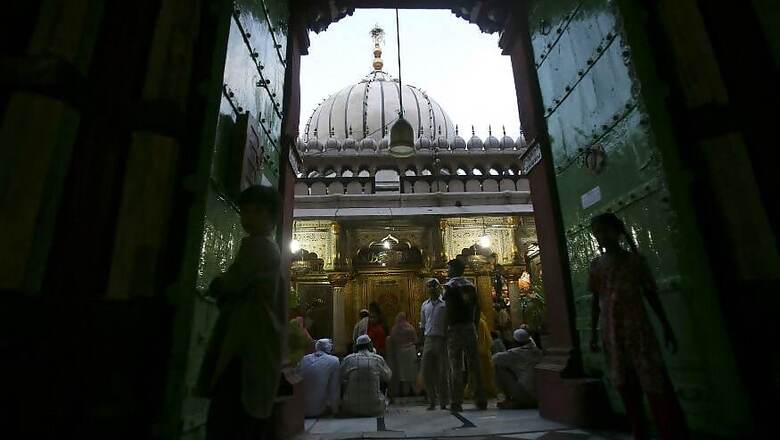
views
New Delhi: The Delhi High Court on Monday issued notice to Government of NCT of Delhi, Police Commissioner, Union Law Ministry and Hazarat Nizammudin Aulia Trust, on a Public Interest Litigation (PIL) seeking women's entry into sanctum sanctorum of Hazarat Nizammudin Dargah.
The court has now slotted April 11 to be the next date of hearing in the case.
The PIL has been filed by law students Deeba Faryal, Shivangi Kumari and Anukriti Sugam, where it has been claimed that a notice was put up outside the Dargah — a shrine built over the grave of a religious figure — restricting women’s entry while they were visiting the Dargah on November 27.
The plea has sought directions to the Centre, Delhi government, Delhi Police and the trust managing the shrine, to frame guidelines ensuring entry of women into the Dargah and declaring the bar as “unconstitutional”.
The petition categorically prays that all women, which includes women of all faith, should be allowed entry inside the main sanctum sanctorum of the Dargah.
Further since the affairs of the Dargah is managed by a religious trust, it has been prayed that no restriction "be put on women by any trust, person, authority or body," and that "women must be allowed to perform all the rituals that a devotee is allowed to perform inside the Dargah".
The famous Nizamuddin Dargah in Delhi does not allow women inside the shrine, although they are allowed to pray, kneel, and kiss outside the wall of the Dargah.
However, now this plea seeks to declare the bar on women as unconstitutional.
The petition also prays that all signage, boards and display signs outside the Dargah barring the entry of women to be removed.
During the Shani Shignapur controversy in 2016, according to reports, Syed Kalim Nizami who shares his ancestry with Hazrat Nizamuddin Auliya, had said that this tradition has been going on for more than 700 years and he sees no reason why it should be questioned now.
However, important to note that the bar on women inside Dargahs is not universal as women are allowed inside the main sanctum sanctorum of the Ajmer Sharif Dargah, one of the most famous shrines in India.
The petition relies heavily on Sabarimala verdict delivered by the Apex court in September this year.
The apex court had allowed women access to the iconic temple, with the constitutional bench headed by CJI Dipak Misra saying that the rules put in place by the temple administration violated Articles 14 and 25 of the Constitution.


















Comments
0 comment